RaceID vs Njuko – Which Race Registration Tool Should You Pick?

Article updated 5 November 2024.
Digital participant registrations allow for efficient management of registration details, payments, and more. Therefore, finding the right participant registration system is an important step for a race organizer.
Two popular platforms in this area are njuko and RaceID. RaceID is our own Event Management & Registration Service and we are proud to be helping hundreds or race organizers each year with their events. With that being said, the aim of this article is to help you figure out which registration system would work best for you. We are therefore trying to keep it as neutral as possible so you can choose the event management system and registration tool that suits your type of race the best.
About njuko
njuko is a robust event management platform that specializes in participant registration for a wide range of sporting events. Founded in France, njuko has quickly become a sought-after solution for event organizers around the world due to its ability to personalize the participant registration experience with their unique technology that is versatile, simple and customizable. njuko’s tagline is “established in the future”, and the company describe themselves as “Europe’s leading registration platform dedicated to endurance sport events”.
About RaceID
RaceID offers a comprehensive event management system (EMS) that serves as an indispensable tool for race and event organizers. With RaceID, event organizers can focus less on the administrative burdens and more on crafting memorable and successful racing events. RaceID is a network of endurance race organizers and participants expanding across the globe every day. Our tagline is: Love the Journey!
In this article, we will compare and contrast njuko as an EMS tool compared to RaceID. We will look at Features, Pricing, Interface/ Design Comparison, Support, and Participant Experience. Let’s get into it!
Features Comparison
To start off, when it comes to features, njuko and RaceID both offer many of the same features. However, they also offer unique features that separate the two. To make it easier to compare, we have chosen to first include a list of features that both njuko and RaceID share, and then unique features that separate them from each other.
What both njuko and RaceID offer:
- Organizer platform
- Individual and Team/Group registrations
- Merchandise, donations and add-ons when signing up
- Bib start number allocation
- Add manual entries
- Event duplication
- Automatic start lists
- Automatic tier price changes by date
- Let participants edit and transfer registrations
- Update your event page and event information
- Import registrations and specific field answers
- See an overview of registrations per distance
- Access and export all your participant data
- Set dates for registration opening times or turn on/off manually
- Multi-currency online payments
- Refunds
- Refund insurance
- Periodic payment to organizers
- Discount codes
- Scheduled emailing
- Links to your social media & website
- Secure Payments
- Trackable campaign links
- Organiser newsletter
- Zapier integration
- Language support (njuko offers 15 languages, RaceID offers 10)
Unique features of njuko:
- Build your own registration platform with 750 modules
- Unlimited customisable exports with password protected share links
- Waiting list invitation management
- Participants can answer questions within an email
- Automated discount based on any form question or condition
- Invoice template generation
- Dynamic content, drag & drop email builder
- Referral codes
- Season tickets
- White label user accounts
- Bundle offers
- Worlds Marathons integration
- Loom video support hub
- Mailchimp integration
- Customer journey management through workflows
See the full list of features: https://njuko.com/en/technology/fundamentals
Unique features of RaceID:
- RaceID Participant App
- RaceID Timing App
- Customizable Race Page visible in event calendar on app & website
- Smart Registration Links*
- Link to your race page & drive traffic to your own website
- Comprehensive financial reports – export with one click
- Marketing Packages
- RaceID Knowledge Base and Organizer Articles
- Send push notifications to participants
*Pre-set specific Wave and Coupon Codes in the registration process, track registration conversions from a certain ads or social media posts.
See the full list of features:
https://raceid.com/organizer/features-pricing/
How do you sign up to njuko or RaceID as an organizer?
njuko: Fill out this form or create an organizer account.
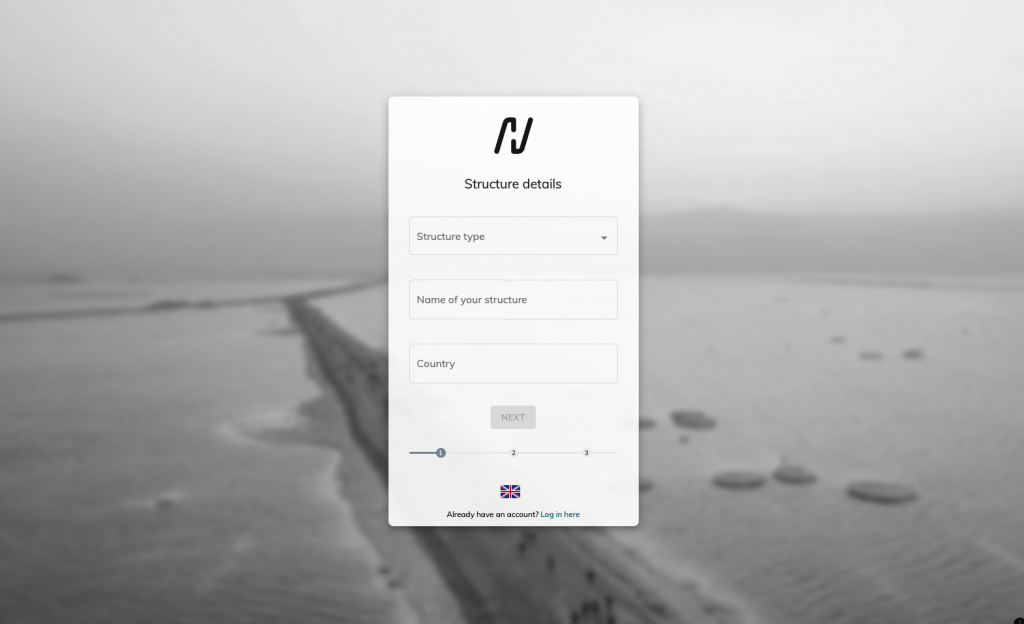
RaceID: Fill out this form or sign up directly with an organizer account.
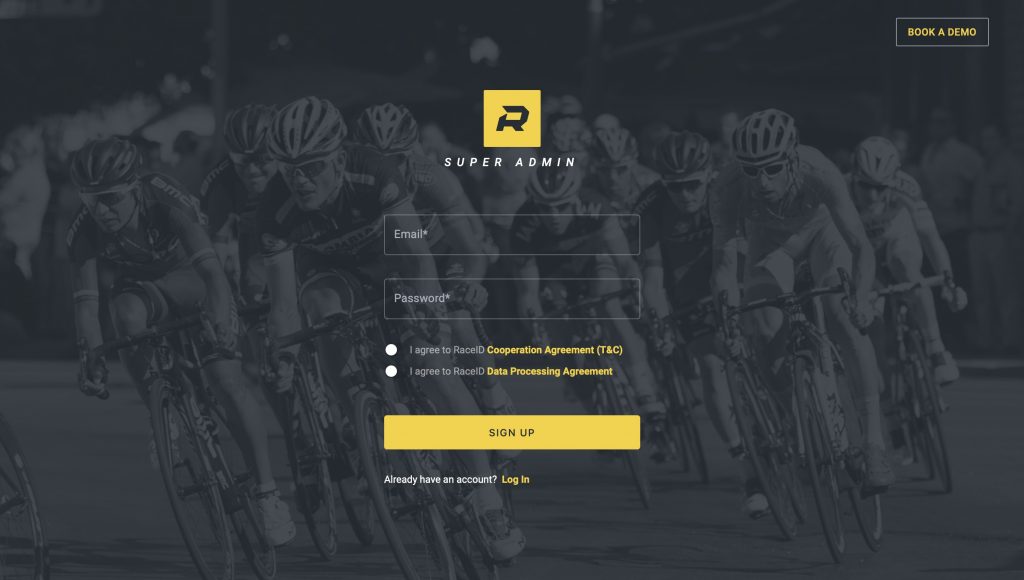
Once you have set up an organizer account, you can create your race directly and send it for approval. Once approved, you are set to go!
When comparing the list of features, the “winner” depends on what you as an organizer are looking for. Both offer great features to simplify your race event admin process with an easy way for participants to sign up, pay, and for you as an organizer to get paid. njuko offers you the ability to build your own registration platform with 750 different modules whereby you only pay for what you choose, whereas RaceID has one registration platform where you don’t need to build anything on your own. It depends on the level of control that you want to have as an organizer – both systems offer great flexibility but in different ways. RaceID also has a large event calendar which allows for worldwide exposure.

Price Comparison:
njuko Registration System Prices
njuko offers a flexible pricing model starting from 0,20 euros per registration. The final cost will depend on what kind of options you are going for and which add-ons you choose.
Let’s say you choose the basic option from njuko, which is 0,20 euros per registration. As a basic option, this is a good price. However, you will probably need to add specific modules to your event. A good estimate for the standard modules you might need as a race organizer is 0.40 euros per participant (estimate provided by njuko).
If we apply this to a race with 500 participants, this is the total base cost:
= 200 euros
Not bad at all! It can be an advantage to build up your own system and only pay for what you need with njuko. Note that payment processing percentages are not included here and not listed for njuko. Card payment processing usually adds around at least a 3% charge on the total amount processed (your total registration fee) – so we cannot know here what the exact price will be for njuko as it depends on your modules and the card fee.
RaceID Registration System Prices
RaceID has a fixed cost of 6% of the registration fee*
So for an event with 500 participants and if the ticket cost is 50 euros, then 3 of those euros will go to RaceID.
So if you have 500 participants that pay 50 euros for the event, the total revenue will be 25000. With the cost of 6% per participant, that means 1500 goes to RaceID.
So you as a race organizer would earn: 23500 euros after our EMS service cost of 1500 euros.
Comparing njuko and RaceID pricing, it is quite similar but it depends on what you need and prefer. With RaceID, you get a set price with everything included and always know what you are paying. With njuko, you have more flexibility over the pricing but need to pay for every feature that you add, which may add up if you want all the advanced features or may come out cheaper if you only need standard features.
Interface/ Design Comparison:
njuko EMS System Admin Interface
To start off you create an organizer account.
When you log into your admin system in njuko, this is what it looks like:
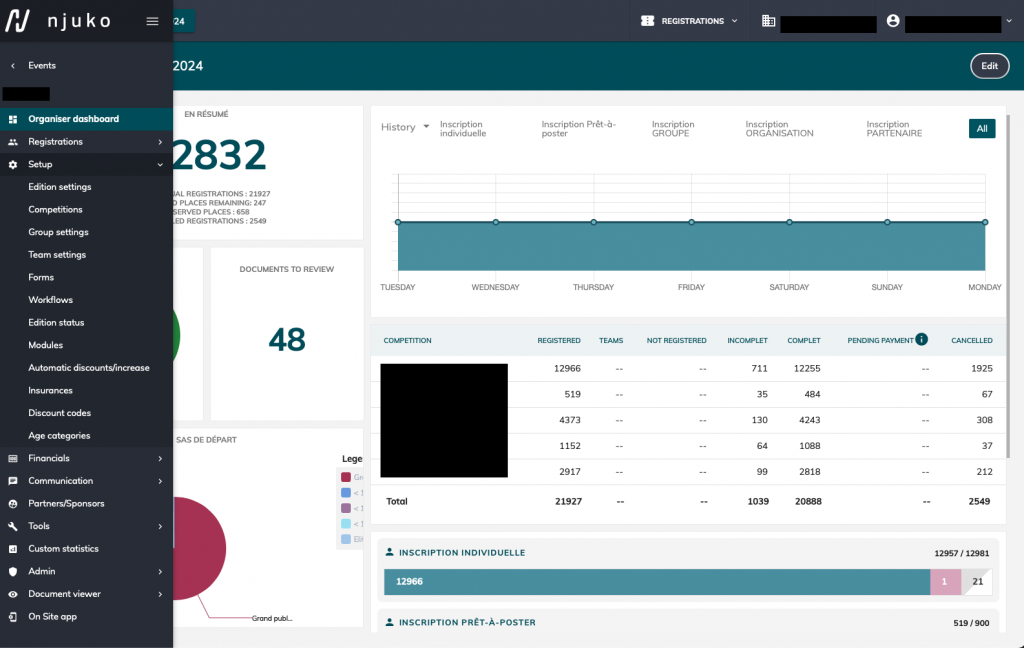
RaceID EMS System Admin Interface
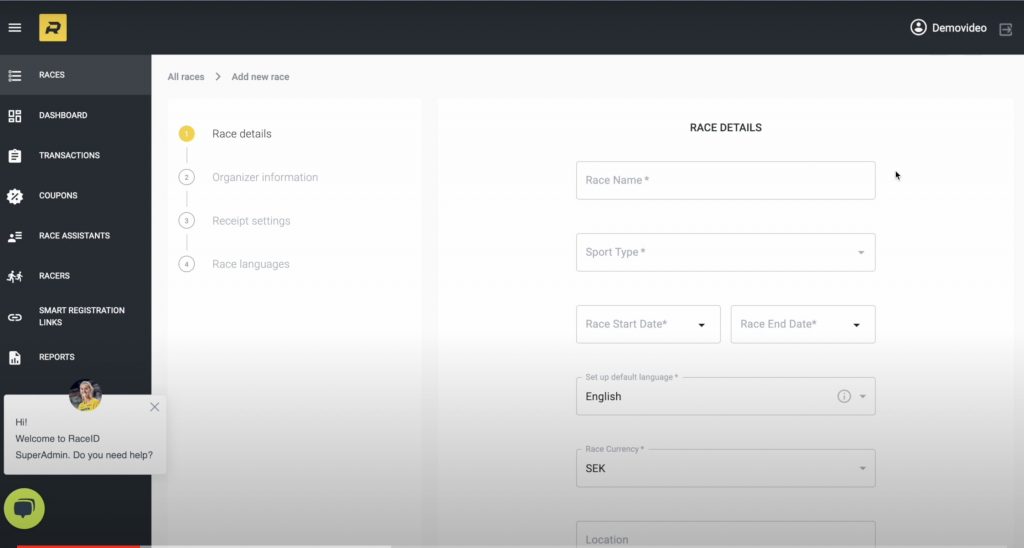
This is what it looks like in the RaceID Super Admin system.
We also have recently updated videos on Youtube explaining every step of the way. Check it out!
Support Comparison:

njuko offers an extensive loom library with over 100 videos where you can get instructions and help with the platform. Each event has an account manager they can email as well as a slack channel for instant communication with quick response times. The njuko support team works closely and personally with events, some key clients also have whatsapp groups for exclusive support.
For RaceID support, you will work closely with our Sales and Customer Support Team. You can email or live chat with our support team at any time, and we reply usually faster than one business day.
- Contact our Sales Manager Andreas for questions regarding your race: andreas@raceid.com
- Contact our Customer Success Manager Lovisa for any help to organize or renew your race: lovisa@raceid.com
- Participants can contact our Participant Support Manager Björn for any questions: support@raceid.com

Participant Experience:
In the case of njuko, the organizer can communicate with their participants before the race via the njuko dashboard. Some examples are: registration status, race day info and links to the organizers website, widgets to edit details, create a fundraising page, or buy merch, having training plans targeted for runners. Then after the race, the participant can see their results, get a certificate, and next edition dates. It creates a personalized experience for the participant which we believe is an important way to give participants more than just a race – i.e. a digital experience.
This is an example of what a njuko participant sign up can look like:
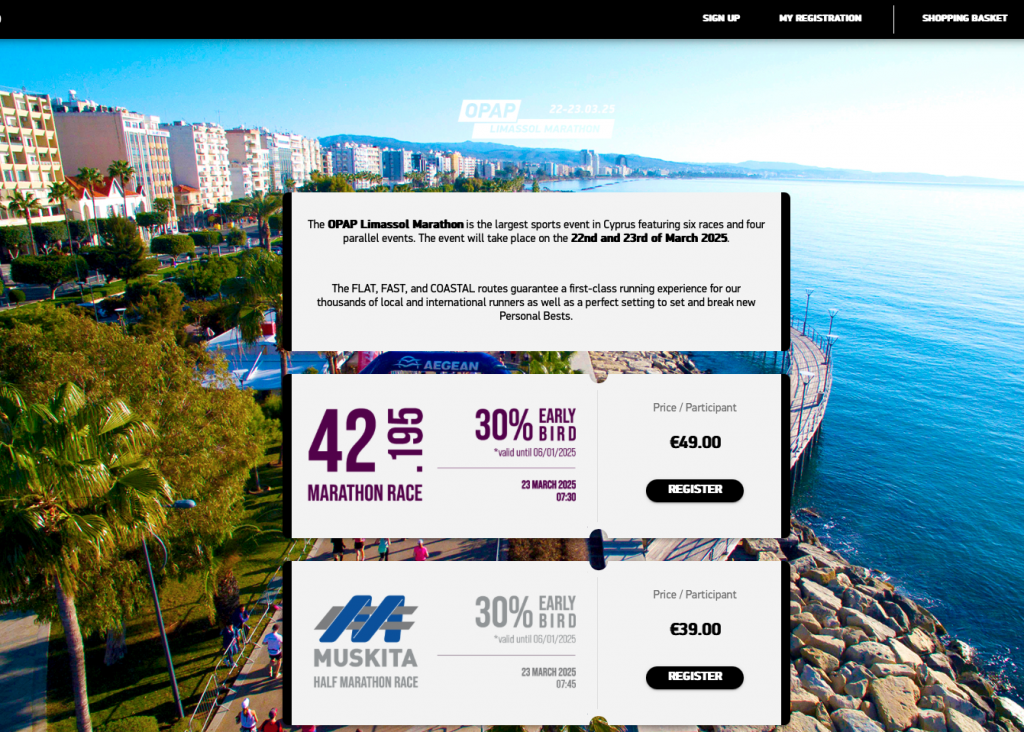
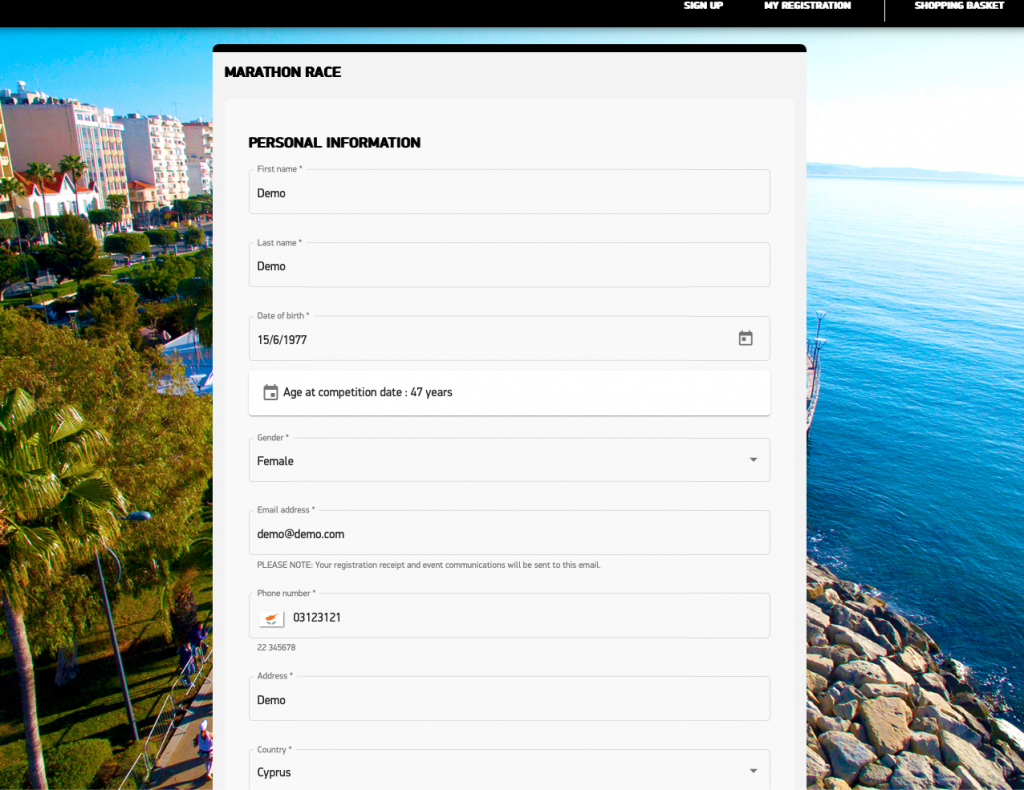
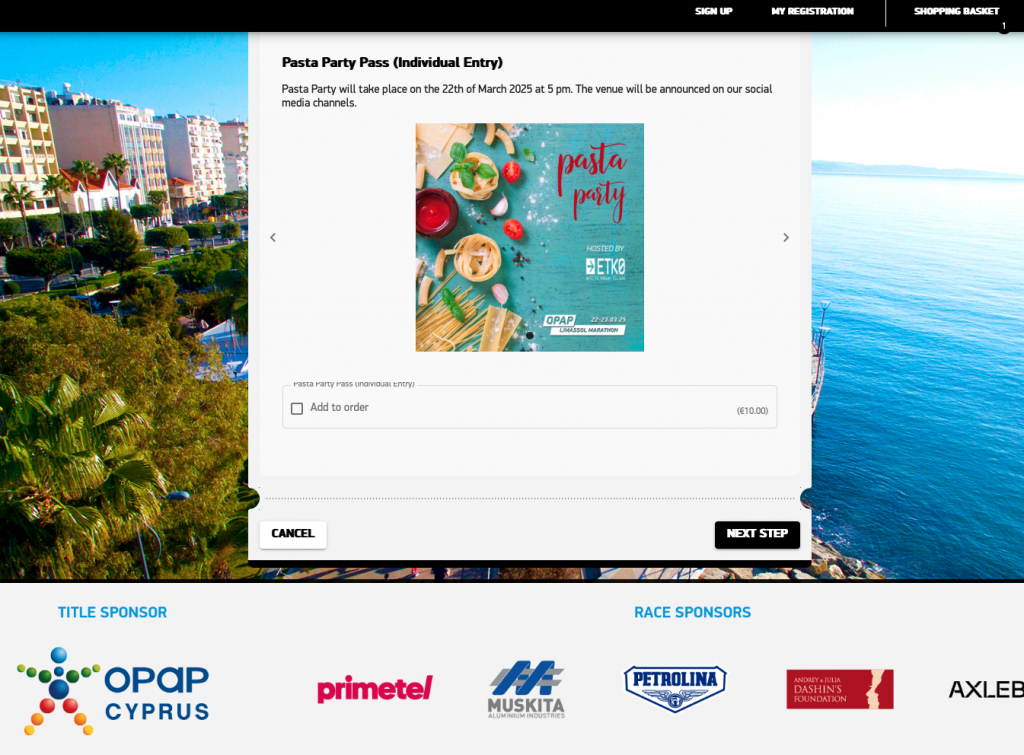

Once you’ve signed up, you will get a confirmation email of your sign up.
This is an example of what the njuko Dashboard looks like to a participant:
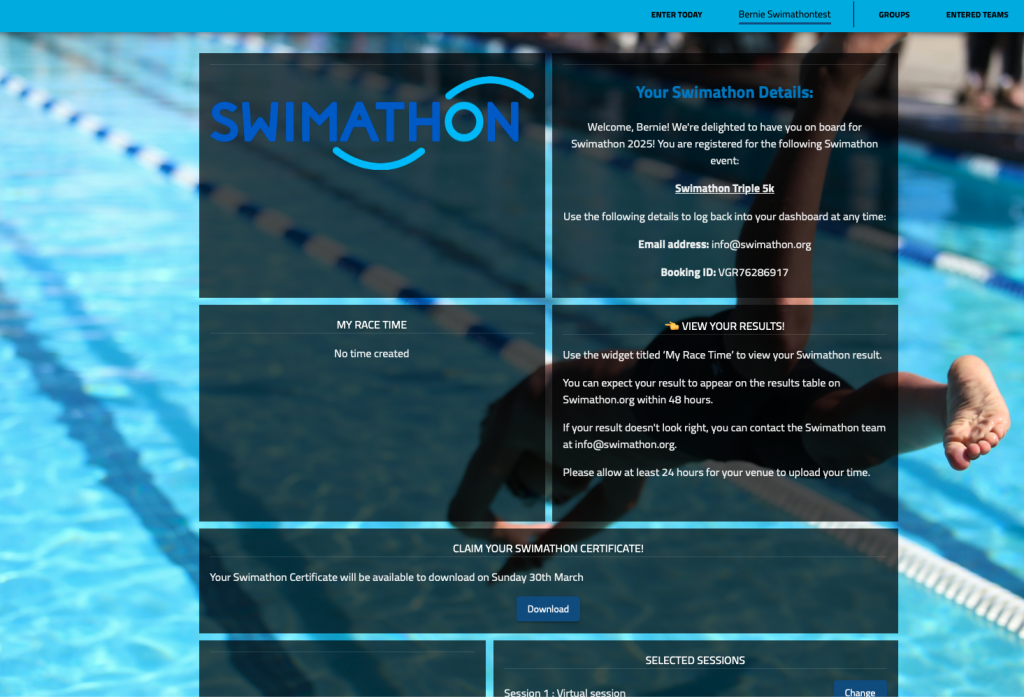
Participants can see the countdown until their race, their registration status, edit their details, the Coach’s Corner with advice on how to prepare for the race, results, weather, and your bib pass.
In contrast, this is what a RaceID participant sign up looks like (desktop):
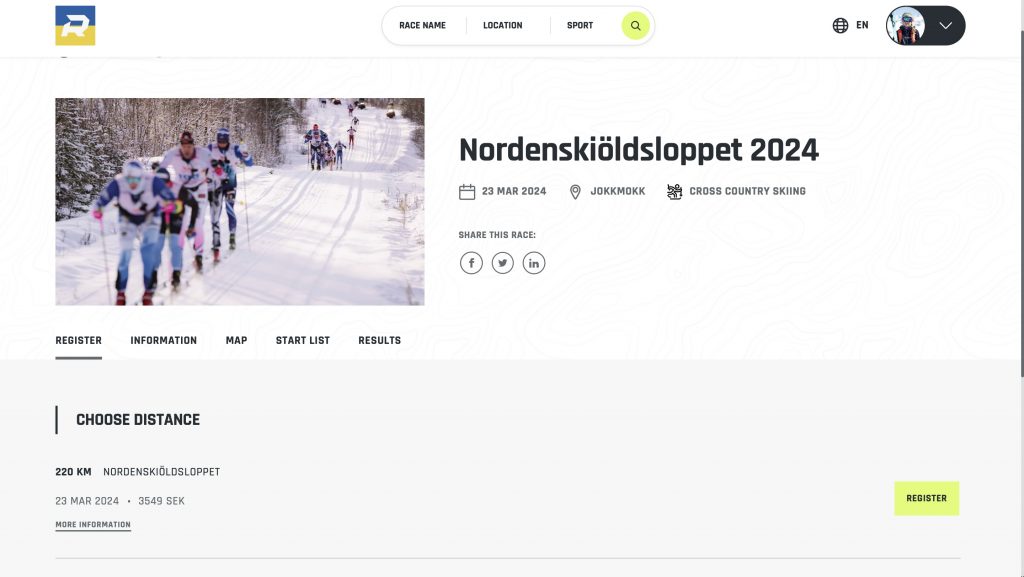
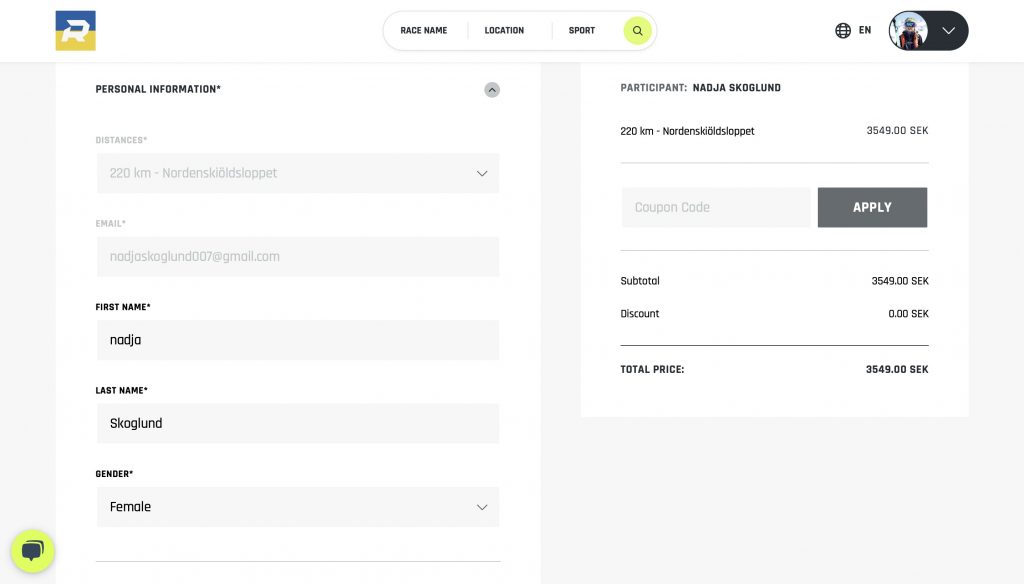
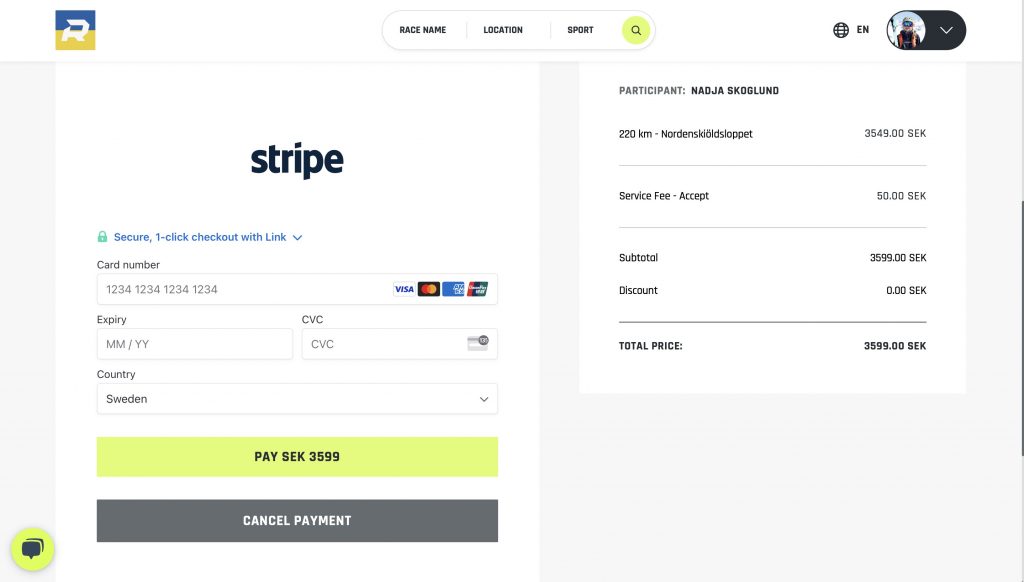
Once the participants have signed up, they also get a confirmation email. Then they can see their race on their RaceID profile too.
This is what RaceID looks like to a participant (dashboard view):
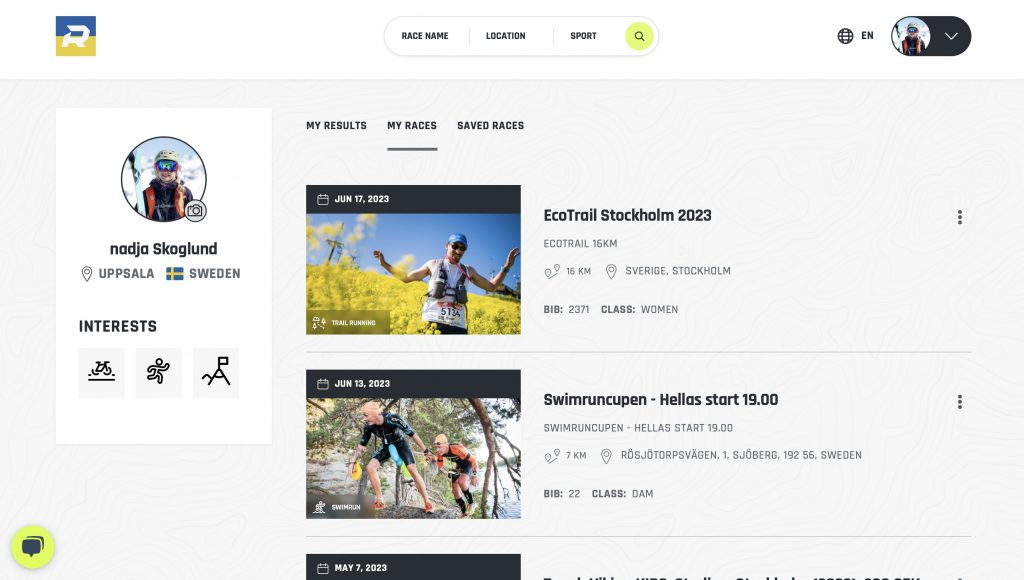
As a participant, you can see all the races you’ve signed up for on the website and in the app – the results from the races, and have “saved” races. You can edit your registration info before race day. On the RaceID app you can also follow your friends and see their results and what races they are doing. You can leave comments when your friends have finished a race.
What Experience Would You Like Your Participants to have?
One key difference between the two platforms lies in the design feel of the sign-ups. While both platforms require participants to input their details to purchase a ticket, RaceID offers the advantage of not needing to re-enter information if the participant already has a RaceID account. In contrast, njuko races, do not support logging in with pre-filled information, which may be a slight inconvenience for some participants. However, it’s important to note that the time difference between signing up with an account and signing up without an account is relatively minimal and not a significant factor in the overall user experience.
Another point of contrast is the social aspect. RaceID incorporates a social element by allowing participants to follow their friends on the RaceID Participant App, view their race results, and comment on their achievements. This fosters a sense of camaraderie and friendly competition within the community. In contrast, njuko does not emphasize a social network within its platform, focusing more on different personalized features for individual participants.
Ultimately, both njuko and RaceID offer smooth and straightforward sign-up processes for participants. The choice between the two platforms depends on the organizers’ and participants’ preferences for the level of personalization and engagement they seek in their racing experience.
Conclusion
In this article, we have examined njuko and RaceID, focusing on Features, Pricing, Interface/ Design Comparison, Support, and Participant Experience.
In summary, RaceID and njuko both offer a robust event management system where you can handle all aspects around your race and also give your participants a fulfilling digital experience. The biggest differences between the two, are the pricing model and also the look and feel around the interface. If you prefer flexibility and don’t mind spending some extra time selecting features and modules, you can use njuko to customize your system and pay for the parts that you need. If you on the other hand prefer a set solution that always includes everything you need (that is also any updates or enhancements in the future) and want to pay a predictable price for each registration, you should choose RaceID. Also make sure you test each system out and figure out which interface will give your participants the best experience!
The right choice of platform can significantly enhance the event experience for both you and your participants, setting the stage for a successful and memorable event, so make sure you choose yours wisely. We hope this article helped you make your choice between RaceID and njuko.
For more options, check out this article that lists and compares the major registration tools in Europe.
To dive deeper into if RaceID is for you, read this article.
Example photos courtesy to njuko platform.
*Please note that participants also pay a service charge when they register of €1. You can choose to absorb this as well.


